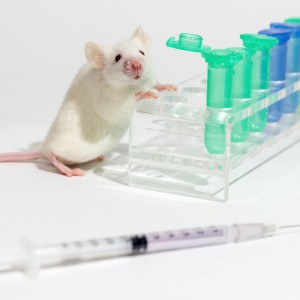Researchers Find Gut Microbes Can Trigger Autoimmune Disease
Written by |

 Findings from a recent study in mice suggest that neonatal colonization of gut microbiota influences generalized autoimmunity in adult life, which may have implications for conditions such as Systemic Lupus Erythematosus.
Findings from a recent study in mice suggest that neonatal colonization of gut microbiota influences generalized autoimmunity in adult life, which may have implications for conditions such as Systemic Lupus Erythematosus.
Researchers from Ghent University Hospital in Belgium found that upon increased levels of segmented filamentous bacteria, an alteration in mice gut lymphoid tissue occurs, causing an exacerbated antibody production that attacks specific features on the nucleus of cells. These altered immune responses are a feature of autoimmune diseases, including systemic lupus erythematosus and systemic sclerosis.
Systemic Lupus erythematous is the most clinically and serologically diverse of the autoimmune connective tissue diseases because it may affect any organ of the body and display a broad spectrum of clinical an immunological manifestations.
The research team examined mice lacking lymphoid organs, generated by interfering two vital autoimmune response proteins, lymphotoxin and Hox11. Results revealed that 25% of mice lacking secondary lymphoid organs suddenly developed specific antinuclear antibodies. In addition, researchers observed that the increase in these antinuclear antibodies (systematic autoimmune response) occurred due to the presence of segmented filamentous bacteria in the gut of younger mice. The study, entitled “Commensal microbiota influence systemic autoimmune responses,“ was recently published in The EMBO Journal.
“Our results demonstrate how gut health in young animals may be linked to autoimmune disease in older animals,” said Dirk Elewaut, Professor at Ghent University Hospital in Belgium in a recent news release. “The microbiome of the young mouse impacts a loss of tolerance of the secondary immune system against proteins in the nucleus of the cell. The attack of certain proteins by the body’s own immune system can subsequently lead to tissue damage and disease. We have demonstrated a link between the microbiome of young mice and the later onset of autoimmune disease.”
These results may help to understand the molecular mechanisms involved in autoimmune diseases such as systemic lupus erythematosus. However, researchers note that, “Further work is needed to establish the precise molecular mechanisms that leads to the onset of diseases like systemic lupus erythematosus and systemic sclerosis in humans but we now have a new path of enquiry that we can pursue and look for potential interventions.”




